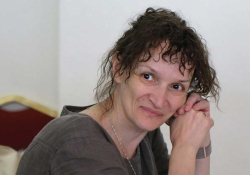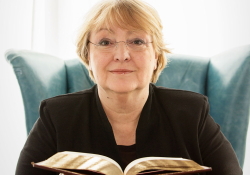When we first began work on this special section devoted to post-Soviet literature, what we were trying to commemorate seemed very clear. We wanted to take stock of all the ways in which East European literature and culture had changed since the collapse of the Soviet Union in late December 1991. As a result of this truly transformative political event, new nation-states had arisen, many of which quickly moved to shake off the legacy of decades of Sovietization and, in some cases, centuries of Russification by promulgating new laws that promoted the use of national languages (Ukrainian, Latvian, Estonian . . .) in education and culture. Place names shifted and new, national monuments replaced Soviet-era commemorative markers in many countries. Over the course of the last twenty years, these changes and a wave of new construction have rendered many East European cities almost unrecognizable. Cultural norms and beliefs, holiday rituals, modes of communication, state symbolism, and popular historical narratives have all altered in fundamental, obvious ways.
Each contribution that we received highlighted the immense nature of the changes that have reshaped Eastern Europe over the course of the last twenty years. Many also, however, problematized our assumptions about the fall of 1991. Which event in 1991 counted as most fundamentally transformative? Was it Mikhail Gorbachev's resignation from the post of Soviet president on December 25 or the disbandment of the Supreme Soviet, the USSR's highest legislative body, on December 26? Or, for that matter, was it the signing, by the presidents of Russia, Ukraine, and Belarus, of the Belavezha accords, which declared the Soviet Union dissolved and created in its place a loose confederation known as the Commonwealth of Independent States, an act that took place on December 8, 1991? What about the abortive military coup that occurred in Moscow in August 1991, the failure of which signaled to many that the old authoritarian measures would no longer work and that real change was inevitable? Didn't that also merit commemoration?
Moreover, were all these political anniversaries really what was most essential? Many contributions in the section that follows highlight the ways in which larger international trends have worked to reshape Russian and East European life and culture over the last twenty years. Freed from Soviet-era restrictions on free trade, residents in these regions have experienced the revolutionary effects of globalization and new digital technologies alongside the rest of us. Twenty years ago cashiers in Soviet stores still often added up purchases for customers on abacuses. In Eastern Europe today, cell phones, computers, iPads, and other digital devices are everywhere. As in the West, the Internet has fundamentally changed the way in which information and cultural texts circulate, giving noncommercial artists and new talents in general a broader forum, in many cases, than would have ever been possible in the past.
No longer restricted from traveling, Russian speakers fanned out across the globe in a vast new wave of emigration following the collapse of the Soviet Union. Large Russian-speaking communities emerged in distant, surprising areas of the world. In addition, substantial enclaves of Russian speakers remained in many former Soviet republics. As a result of both trends, Russian-language literature became increasingly international in origin: important Russian writers now hail from many different countries.
This special section of WLT seeks to recognize the many ways in which Russian and East European culture have changed over the course of the last twenty years and offers readers the chance to learn about new literary voices and contemporary trends. The section opens with an essay by Nadezhda Azhgikhina that considers the problem of censorship in Russia today. An essay by Kevin Platt on an innovative collaborative translation project and on the current state of Russian-language poetry follows. Platt's essay introduces a selection of translations by members of his working group that includes poems by Semyon Khanin, Artur Punte, Feodor Swarovski, Sergej Timofejev, Viktor Ivaniv, Ksenia Shcherbino, and Grigory Kruzhkov. Short stories by Oleg Woolf (Moravia) and Iren Rozdobudko (Ukraine) and an article by Catharine Nepomnyashchy on recent Russian television adaptations of both nineteenth-century and Soviet-era literary classics round out the section. Online, our discussion of new trends in Russian and East European culture continues with a short story by Tania Malyarchuk (Ukraine), an article by Michael Naydan on emerging Ukrainian women prose writers, and a selection of poems by the Saami poet Askold Bazhanov (worldliteraturetoday.com).
In assembling this special section, we have tried to take an inclusive approach and have incorporated material by authors from different countries and generations as well as essays that reflect a variety of perspectives on today's Russia and Eastern Europe. However, no single magazine section can ever fully represent contemporary cultural development in such a vast expanse of territory. The former Soviet Union contains many very distinctive cultures, most of which remain in a dynamic state of change today. In many new countries in this area of the world, the extent to which democratic practices will ultimately take hold still seems unsettled; resurgent censorship, authoritarian leaders, rampant corruption, and strident nationalist rhetoric cloud hopes for the future. Potential regional conflicts over natural resources, borders, and the rights of ethnic minorities remain a real threat. Positive phenomena such as rising living conditions, economic development, the modernization of industry and infrastructure, and new freedoms, in other words, exist alongside other, more troubling trends.
In literature, likewise, the future seems uncertain. Postmodernism, the dominant cultural movement in much of this area in the decades that followed the collapse of communism, seems, according to some observers, to be waning, and yet it is by no means clear what will replace it. Although many promising young writers have emerged, few wield the sort of influence or boast the kind of oversize public persona that both official and unofficial writers of the communist period so frequently did. As a result, the landscape of literature seems to have fragmented: readers have more choices and must, in the absence of a clear pantheon of leading writers, themselves evaluate a constant stream of new texts and authors.
Moreover, even as the variety of serious literature in Russia and Eastern Europe has increased, its audience has, by many measures, shrunk. With the collapse of communism, the populations of the former Soviet Union and Eastern Europe gained easy access to forms of popular entertainment that had earlier enjoyed only very limited circulation or had not existed at all, including detective fiction, glossy fashion magazines, Hollywood-style action films, and certain kinds of popular music. On subways and on buses, commuters today text and play video games or listen to music: one sees fewer readers in general and certainly fewer individuals immersed in works of serious fiction or poetry, but perhaps such a behavioral shift was inevitable. To some extent, the mass interest in fine literature and high culture in general that once seemed one of the few legitimate accomplishments of the Soviet state always represented an artificial phenomenon that emerged partly as a result of shortages and censorship: many people read fine literature because few other entertainment options existed; banned books and persecuted writers appealed as forbidden fruit.
In Russia and Eastern Europe, culture now functions as something closer to a free marketplace, full of variety and energy, and that is certainly welcome. We hope that the material provided in the pages of this issue and online will offer you a snapshot of this exciting, rapidly evolving cultural world.
University of Oklahoma
Editorial note: For WLT's further reading list of prose and poetry from all fifteen post-Soviet countries, see our Post-Soviet Reading List.
For Further Reading
Marina Balina, Nancy Condee, and Evgeny Dobrenko, eds., Endquote: Sots-Art and Soviet Grand Style (Northwestern University Press, 2000)
Eliot Borenstein, Overkill: Sex and Violence in Contemporary Russian Culture (Cornell University Press, 2007)
Edith Clowes, Russia on the Edge: Imagines Geographies and Post-Soviet Identity (Cornell University Press, 2011)
Evgeny Dobrenko & Marina Balina, eds., The Cambridge Companion to Twentieth-Century Russian Literature (Cambridge University Press, 2011)



